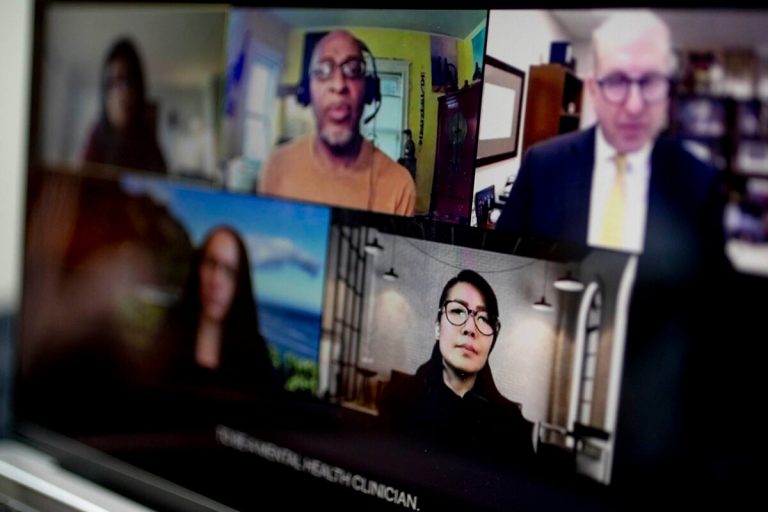College students of color not only face a disproportionate risk of contracting COVID-19, they are particularly vulnerable to its psychological damage — especially when the longtime struggle against inequality and the current financial crisis are factored in, according to speakers at a virtual Harvard forum.
Phillip Martin, a senior investigative reporter at the GBH News Center for Investigative Reporting and the moderator of “Innovating on Campus: Supporting Mental Health of Students of Color During COVID-19 and Beyond,” said those students “are facing pressures and stresses like never before. And at the very same time they’ve lost access to many of the systems that are in place to help support students’ mental health.”
Speakers at Tuesday’s event, presented by the T.H. Chan School of Public Health in partnership with The Steve Fund and GBH News, said campuses need to better serve those students’ emotional needs during the pandemic and going forward.
“This time has been particularly challenging for first-generation, low-income students of color,” said Pace University President Marvin Krislov, “whether it’s through the illness, the availability of technology, social justice questions, financial challenges, and also the sense of community, which can be much more challenging in a remote environment. We know we need to … commit as an institution and as a community to reaching out and making sure that students have the support they need.”
Meeta Kumar, director of student counseling at the University of Chicago, said that while “all students are struggling with pandemic-related stressors such as isolation and fatigue, there are additional variables that impact mental health of [people of] color and marginalized communities.”



